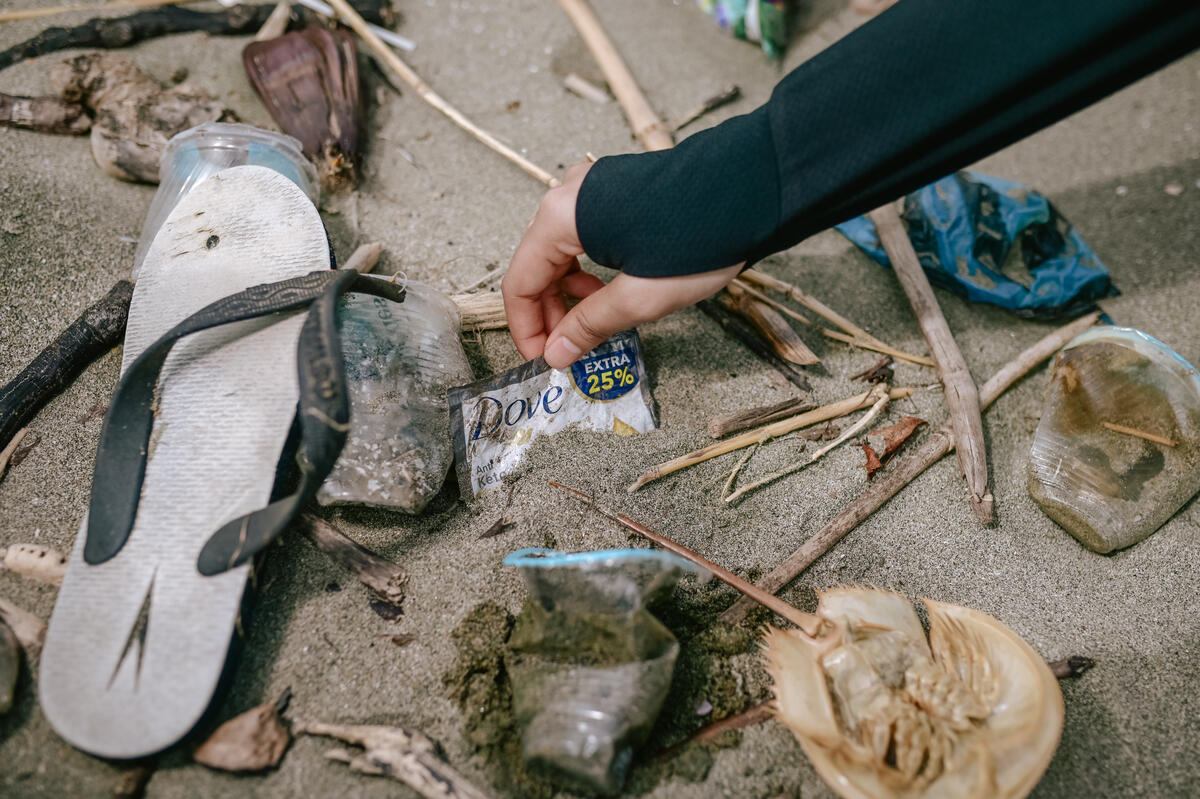Unilever has spent many years positioning itself as a responsible company that’s dedicated to sustainability and nowhere is this more evident than in the Dove brand for personal care products. Dove has built a powerful narrative around female empowerment and sustainability issues and carefully interlaced positive messages about women within its mainstream product advertising.
Key facts
Unilever produced 53 billion unrecyclable plastic sachets in 2023.

Unilever's sachet production has increased by 40% since 2010.

Unilever is being targeted by the CMA and Greenpeace over its environmental performance claims.

Criticism and scrutiny
However, the wheels may be about to come off this particular marketing bus and external critics are now questioning the depth of Dove’s ethical commitments.
- Unilever is currently the subject of an investigation around greenwashing by the UK Government’s Competition and Markets Authority which is analysing a range of potentially false claims about environmental performance.
- Meanwhile, Greenpeace launched a campaign to confront Unilever’s hypocrisy in November that exposed the company’s record on single use plastic packaging and particularly the use of sachets in Asian markets.
53bn plastic sachets
In 2023, Unilever produced 53 billion plastic sachets to dispense small portions of their personal care, homecare and food brands, 6.4 billion of which were for Dove products.
The sachets are unrecyclable and predominantly sold in developing countries where robust waste management systems are absent. All of the sachets sold by Unilever in a single year will be either discarded in the environment, burned in low temperature bonfires, dumped in landfills or put into incinerators or cement kilns.
Unilever’s response: handwringing, but little action
Unilever has identified plastic sachets in the past as a major problem and has made public statements that it will tackle the issue.
- In 2019, Unilever’s President for Global Food & Refreshments said, ‘we’re a big polluter,’ and referred to multi-layer plastic packaging (which includes sachets) as ‘evil because you cannot recycle [them]’.
- In 2020, then CEO Alan Jope, said that the company ‘had to get rid of them’.
However, despite the corporate hand-wringing there has been little action and the problem has just got worse – Unilever increased sachet production by around 40% from 2010 to 2023.
Unilever is uniquely vulnerable to brand damage
The company’s failure to address one of their biggest plastic pollution problems is likely to have an impact on the bottom line. Unilever brands that have integrated sustainability messaging into their core marketing values are uniquely vulnerable to public attacks around hypocrisy.
Dove customers who have bought into the brand’s marketing narrative are likely to be strongly influenced by trusted advocates like Greenpeace and dismayed by charges of greenwashing.
Unilever investors as well as their customers deserve answers
Investors need to ask Unilever some tough questions about plastic packaging:
- Why has the company failed to make progress on a problem it identified more than a decade ago?
- Why has it allowed its premium ‘ethical’ brand to end up in the cross hairs of a global Greenpeace campaign?
- How much is this all going to cost in terms of brand damage and what does this mean for Dove’s future market success?
Investors have a right to know about how these issues are impacting their investments and what Unilever plans to do about it.
Learn more
Uncovered: Unilever’s complicity in the plastics crisis and its power to solve it
Read the full report to understand Unilever's role in the plastics crisis, and how it can become a true sustainability leader.

